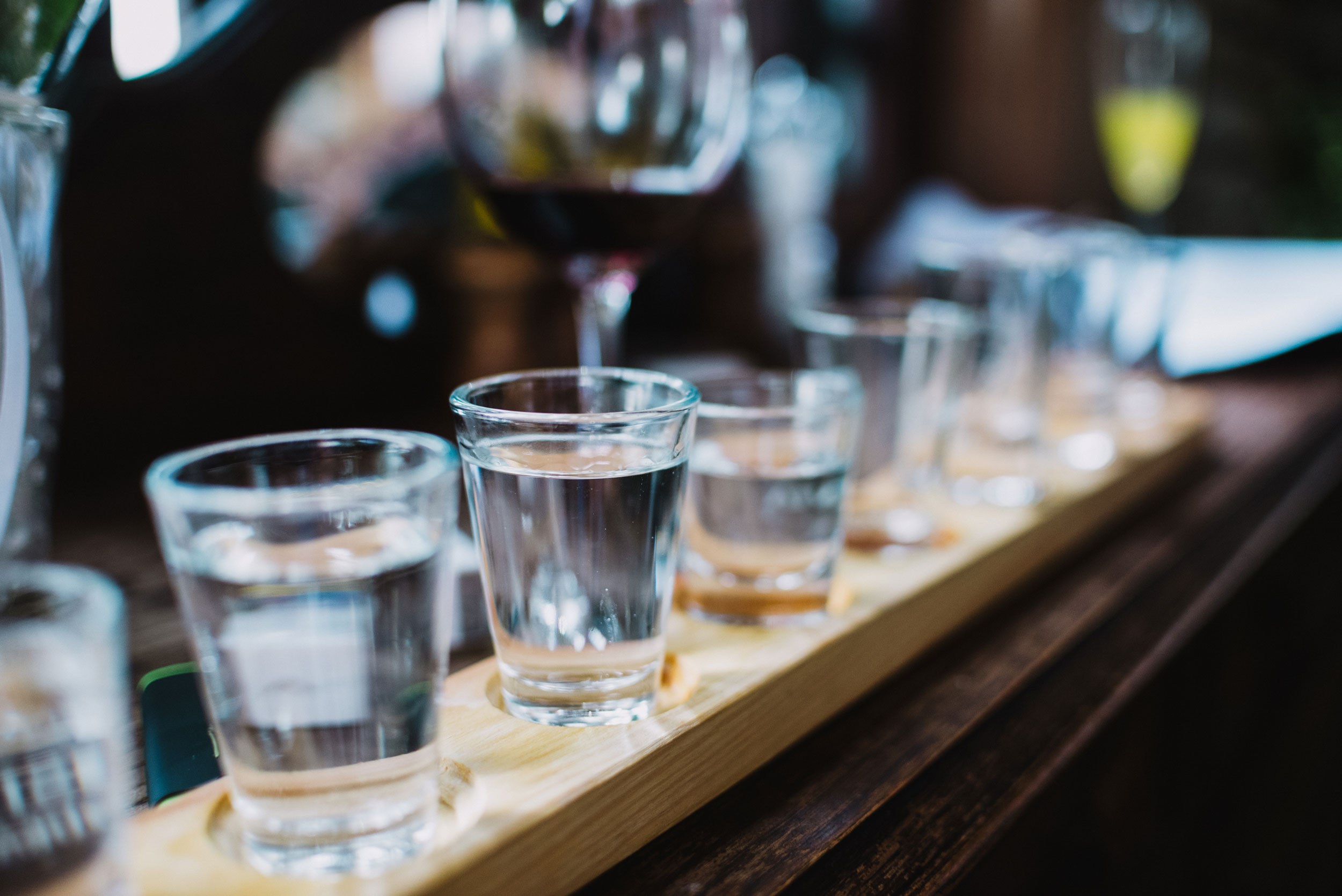Vodka
Alberta vodka stands as a testament to the province's commitment to quality and innovation in the spirits industry. Distilled primarily from grains, with barley and wheat being popular choices, Alberta's vodka showcases the agricultural strengths of the region. The combination of pure water sources and high-quality grains results in a vodka that is both smooth and characterful. In recent years, the province has seen a surge in craft distilleries, producing vodkas that range from classic to experimental, each reflecting the spirit of Alberta.

About
Vodka, by definition, is meant to be a neutral spirit, distilled to a high proof and often filtered to remove impurities. In Alberta, the emphasis is on using local resources to their fullest potential. The province's vast grain fields produce top-quality crops, which play a pivotal role in vodka production. Alberta's pristine water, derived from its mountains and glaciers, is another key ingredient, giving the vodka its clarity and taste.
Craft distilleries in Alberta often adopt a grain-to-glass philosophy. These distilleries maintain close ties with local farmers and are involved in every step of the production process, from selecting and processing grains to distillation, filtration, and bottling. This close-knit approach ensures a product that is both authentic and of high caliber.
History
While vodka may be more historically associated with countries like Russia and Poland, Alberta's foray into vodka production has roots in its agricultural and immigrant backgrounds. Early settlers, familiar with the art of distillation, recognized the potential of the region's grains and pure water for spirit production.
However, it was only in recent decades, with the rise of the craft spirit movement and changes in provincial liquor regulations, that Alberta's vodka scene truly began to flourish. This period saw the establishment of several craft distilleries, focusing on producing small-batch, artisanal vodka. These vodkas, while paying homage to traditional methods, also embraced innovation, leading to a range of products that proudly bore the Alberta stamp.
Ways To Cook
While vodka is commonly associated with cocktails, it has a place in culinary applications as well:
- Flavor Infusions: Vodka acts as an excellent medium for infusing flavors. Ingredients like fruits, herbs, and spices can be steeped in vodka to create flavored variants.
- Sauces: Vodka can be used in certain sauce recipes, like the classic penne alla vodka, where it adds depth and a slight kick.
- Desserts: Vodka can be introduced into desserts like sorbets, where it helps in achieving a smoother texture. It's also a popular ingredient in certain cakes and pastries.
- Preservation: Vodka can be used as a preservative for items like vanilla beans, creating homemade vanilla extract.
- Marinades: While not as common, vodka can be used in marinades to tenderize meats and impart a unique flavor profile.
- Cocktails: Of course, one of the primary uses of vodka is in cocktails, where its neutral character allows other ingredients to shine.
When cooking with vodka, remember that while some alcohol burns off during the cooking process, not all of it will. As always, consider your audience when serving dishes made with vodka.
Some Of Our Favourite Videos
Alberta Vodka Producers
Pivot Spirits
About this producerFoods from this producer:
Eau Claire Distillery
About this producerFoods from this producer:
